These crispy sardine cakes are the perfect way to get your omega 3 fatty acids in. Learn how to consume this essential fatty acids to manage inflammation! In partnership with Wild Planet
The importance of healthy fats
The majority of people today eat a diet low in fat or high in rancid or hydrogenated fats. On a cellular level, why is a low-fat (or “poor fat”) diet detrimental to health?
Polyunsaturated fats can be very good for you or very bad for you. Vegetable and seed oils are high in polyunsaturated fatty acids (PUFAs), which are highly unstable and prone to oxidation when heated! During oxidation, free radicals form. Radicals are highly reactive molecules with an unpaired electron in the outer shell. These free radicals cause cell damage and essentially make the PUFA carcinogenic. As a result, our system reacts by countering them with antioxidants but also with inflammation which can be problematic, according to JZ Nowak. In addition, low-grade chronic inflammation is associated with obesity, chronic pain, depression, vascular disease, and dementia.
Get safer forms of PUFAs from Sardine Cakes
These rancid and hydrogenated cooking oils are highly processed and are made with extreme heat and strong chemicals. They are like poison to your bodies, according to this study. However, safe and beneficial forms of PUFA’s come in whole food forms like small oily fish (sardines, mackerel), wild caught salmon, grass-fed beef, chia seeds, and hemp hearts!
Wild Planet Wild Sardines in Extra Virgin Olive Oil with Lemon are lightly smoked. The sardines contain 1,800mg of EPA and DHA omega-3 and 18g of protein per serving (per can). These are scale-free, sustainably sourced and just so good. You’re going to go nuts over these sardine cakes. Even if you are hesitant to try sardines for your inflammation, this recipe will make you a believer.
Balancing Omega Fatty Acids
No food is 100% omega-3, without some omega-6 fatty acids as well. However, most foods we consume today, like hydrogenated vegetable oils and nuts and seeds are much higher in omega-6 than omega-3 fatty acids. AP Simpopoulos contends that making a conscious effort to consume foods with higher omega-3 rations is instrumental in managing inflammation.
NSAIDs and inflammation
Nonsteroidal anti-inflammatory drugs (NSAID) and steroids block the enzymes that produce prostaglandins. When you get hurt the damaged tissue releases a hormone, like prostaglandins, that increases swelling (causing it to swell before it heals) and communicates pain to the central nervous system. So, by blocking the production of prostaglandins you get less pain and less swelling; however, it’s not treating the injury and blocks important communication pathways in your body.
Prostaglandins are a type of eicosanoid. Eicosanoids are regulatory molecules made from omega-3 and omega-6 fatty acids. Prostaglandins D2, E2 and F2 are made from omega-6 and are a part of the inflammatory prostaglandin, PG2. Inflammation is a natural part of the healing process. However, sometimes the inflammation can become chronic and this is unwanted.
NSAID’s work by blocking the COX-1 and COX-2 isoenzymes. They suppress all eicosanoids and in turn block all prostaglandins, PG1, 2 and 3. Suppressing not only the body’s inflammatory response but also the anti-inflammatory response.
The importance of Omega Fatty Acid balance
PG1 and PG3 series prostaglandins act in an anti-inflammatory capacity, made from DGLA and omega-3 fatty acids. This is why it’s important to have an optimal fatty acid balance; omega-6 to omega-3 ratios should be 1:1, but 4:1 is great too. These two essential fatty acids (EFA’s) cannot be created in the body and must be consumed, so consuming them in proper ratios is key!
Why Sardine Cakes are a better way
Dr. James DiNicolantonio concluded in this study that, “Instead of using NSAID’s to inhibit the formation of omega-6 AA metabolites, eating more EPA/DHA can provide a similar effect. Omega-3’s PUFAs act to prevent chronic low-grade inflammation. Using long-chain omega-3s to suppress low-grade inflammation may benefit numerous chronic diseases such as rheumatoid arthritis, atherosclerosis, dyslipidemia, diabetes, obesity, and heart failure.”
Getting a balance of omegas with Sardine Cakes
Linoleic acids (omega-6) are essential to your healing process, they are in charge of healthy inflammatory responses in your bodies. The issue arises with the over-consumption of omega-6 EFA and the fact that most American’s consume a lot of these toxic seed based oils regularly (canola, soybean oil, rapeseed oil, grape seed oil). Be mindful of staying in that 1:1 or 4:1 ratio, and believe me, it’s harder said than done! So many foods we commonly eat today are high in omega-6, which while some (like nuts and seeds) are good for you, need to be kept within a close range of alpha-linolenic acids (omega-3).
Choose sardines for nutrient density
Yeah, you can supplement, but the really good and effective fish oil supplements are expensive! Why pay $50/month or more when you can pay a few bucks for a can of sardines. You get the most bioavailable form of omega-3, protein and a meal out of it! Sardines also pack vitamin B12, vitamin D, calcium and more!
I love these Wild Planet Sardines packed in olive oil. Lightly smoked with a lovely lemon flavor. These sardine cakes are going to be your go-to omega-3 dose. You can also try their canned salmon, another amazing source of omega-3 fatty acids.
The best sardine cakes
This recipe is quick and easy, and the flavors are super satisfying. Sardine cakes are a perfect way to prep quick meals. For example, you can whip up a batch and then use them throughout the week, served on top of a salad or in a lettuce wrap or keto burger bun.
Looking for more free recipes?
Subscribe to my newsletter and follow along on Instagram, Facebook, YouTube, and Pinterest for all of the latest updates.
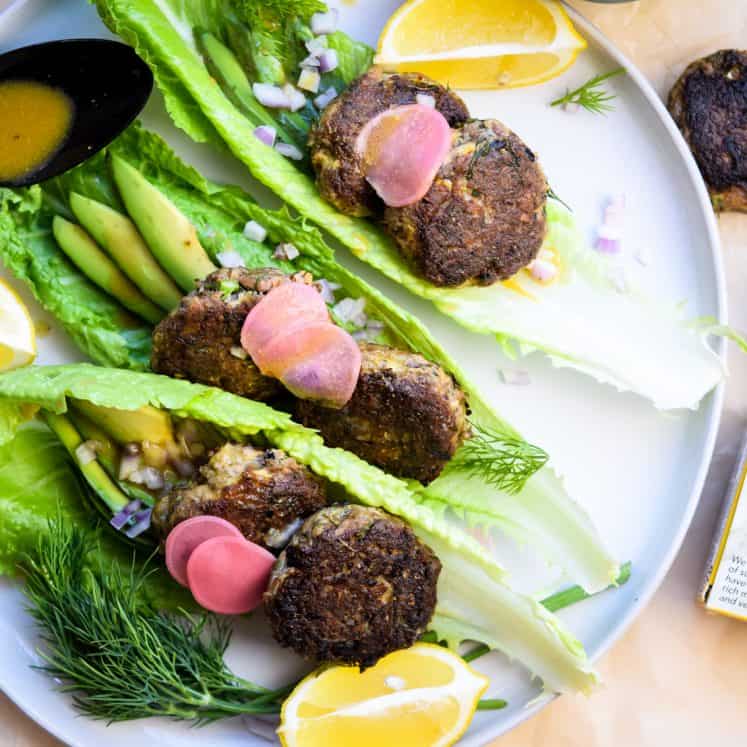
Truly Delicious Sardine Cakes (Paleo, Anti-Inflammatory, Keto, Nut-Free)
- Prep Time: 10 minutes
- Cook Time: 8 minutes
- Total Time: 18 minutes
- Yield: 6 cakes 1x
- Category: Entree
- Method: Pan Fry
- Cuisine: Healthy
Description
The best source of Omega-3 in a delicious recipe!
Ingredients
- 2 cans Wild Planet Wild Sardines in Extra Virgin Olive Oil with Lemon
- 1/4 cup red onion, minced
- 1/4 cup fresh dill, minced
- 1/2 teaspoon fine salt
- 1/2 teaspoon fine garlic powder
- 1 large egg
- 3 tablespoons lard or ghee
- 1 tablespoon Spicy Brown or Dijon Mustard
- 2 tablespoons coconut aminos
- 1 teaspoon black pepper
- 4 romaine lettuce leaves
- 1 ripe Hass avocado, sliced
- Fresh dill for garnish Pickled veggies (optional)
Instructions
- Open the cans and drain the oil out into a measuring cup.
- Crumble the sardines into a medium bowl and add the onion, dill, salt, garlic, and egg. Mix well and shape 6-8 small patties.
- Heat a large cast-iron skillet over medium heat.
- Melt the lard. When it comes to temperature, fry the patties for 3 minutes a side. Remove from the heat.
- Use an immersion blender or a frother to mix the drained olive oil from the cans with coconut aminos, mustard, and black pepper. More salt to taste.
- Put two patties on each romaine leaf with avocado, and garnish. Drizzle the sauce over the sardine patties and dig in.
- If you’re a mayo lover, I highly recommend using Chosen Foods Wasabi Mayo or my Cilantro aioli on these bad boys too! Fish cakes and mayo just go together!
Nutrition
- Serving Size: 1/2 recipe
- Calories: 582
- Fat: 47g
- Carbohydrates: 12.9g
- Fiber: 5.1g
- Protein: 29.8g

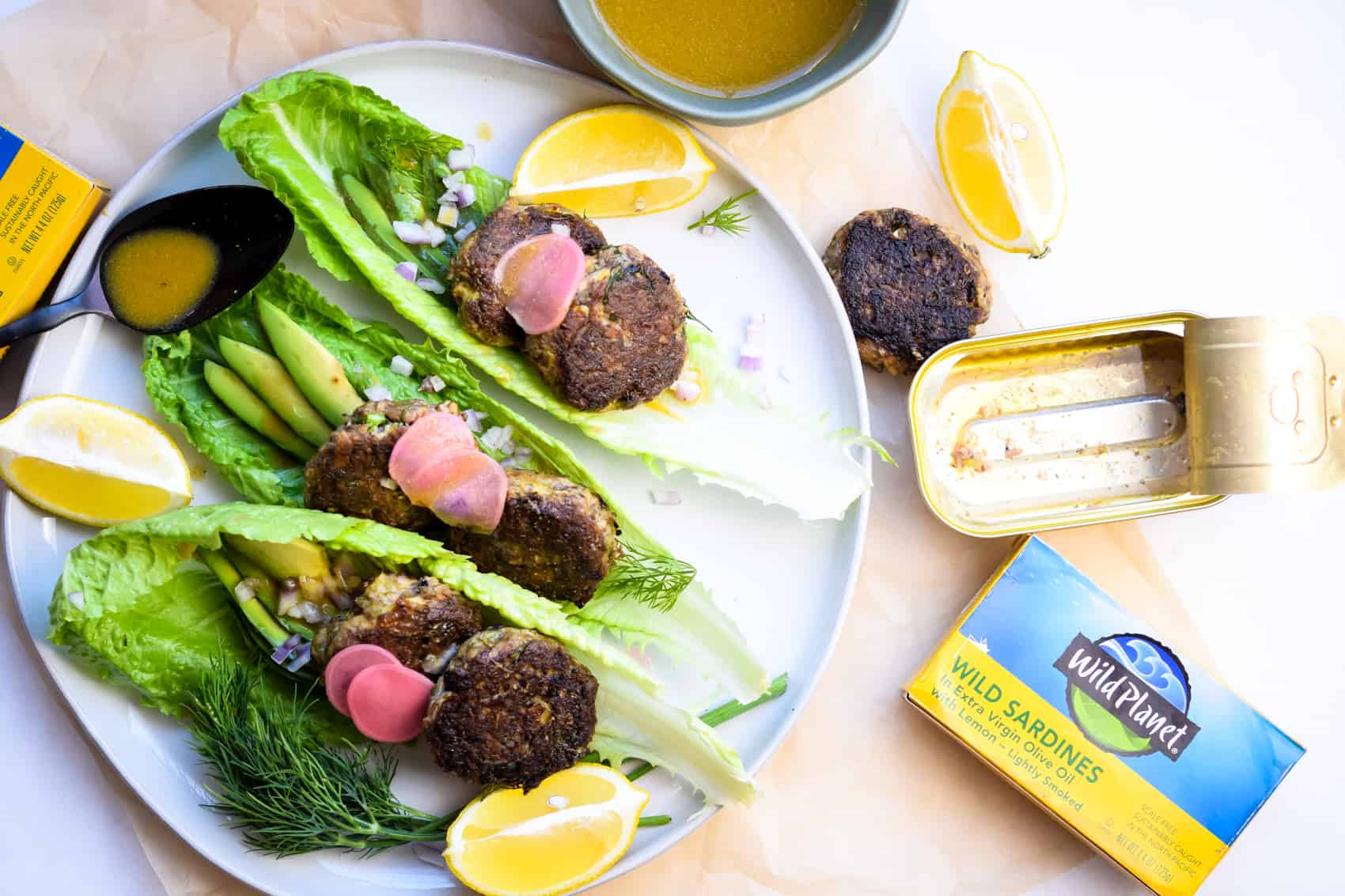
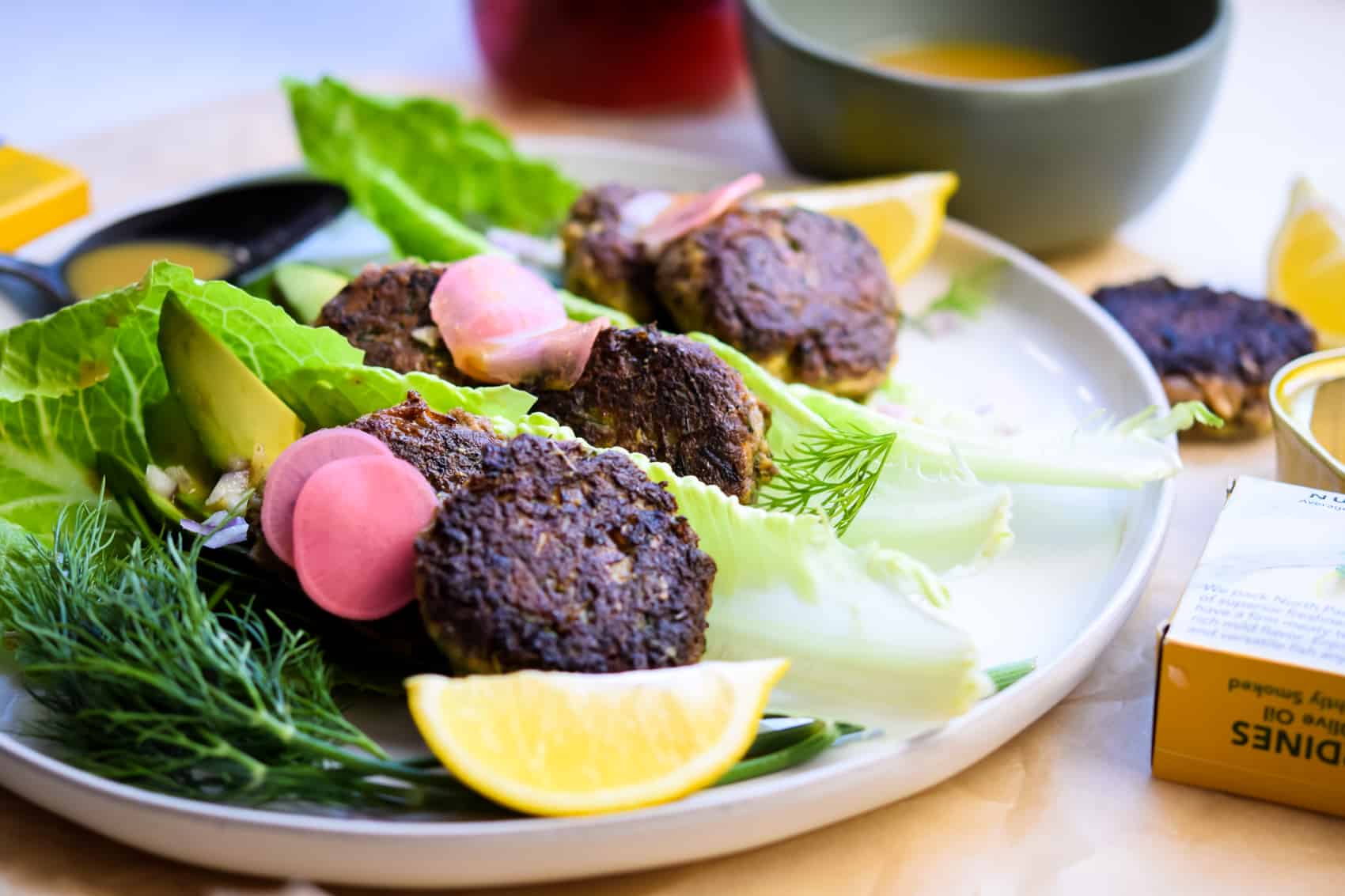
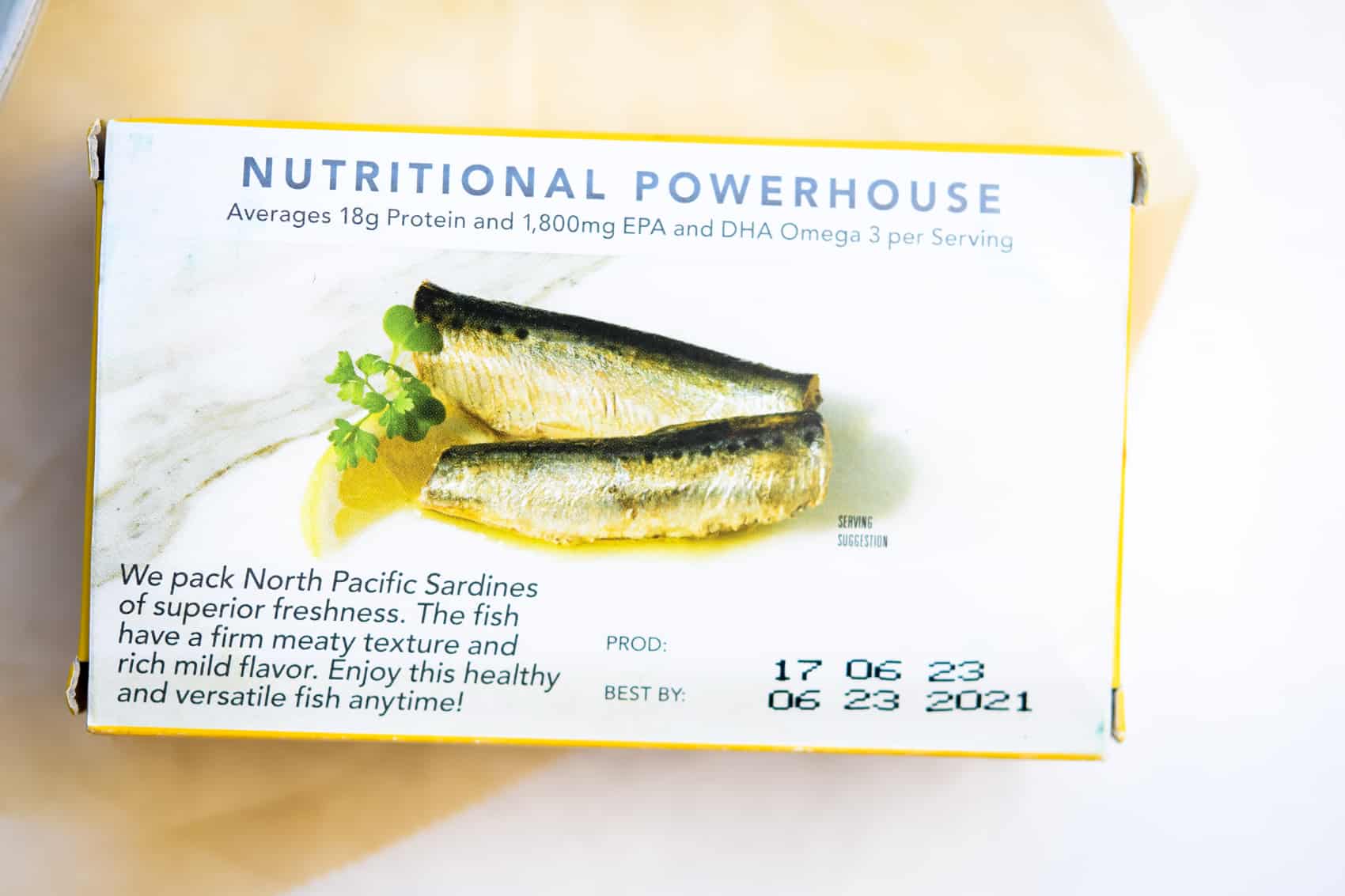
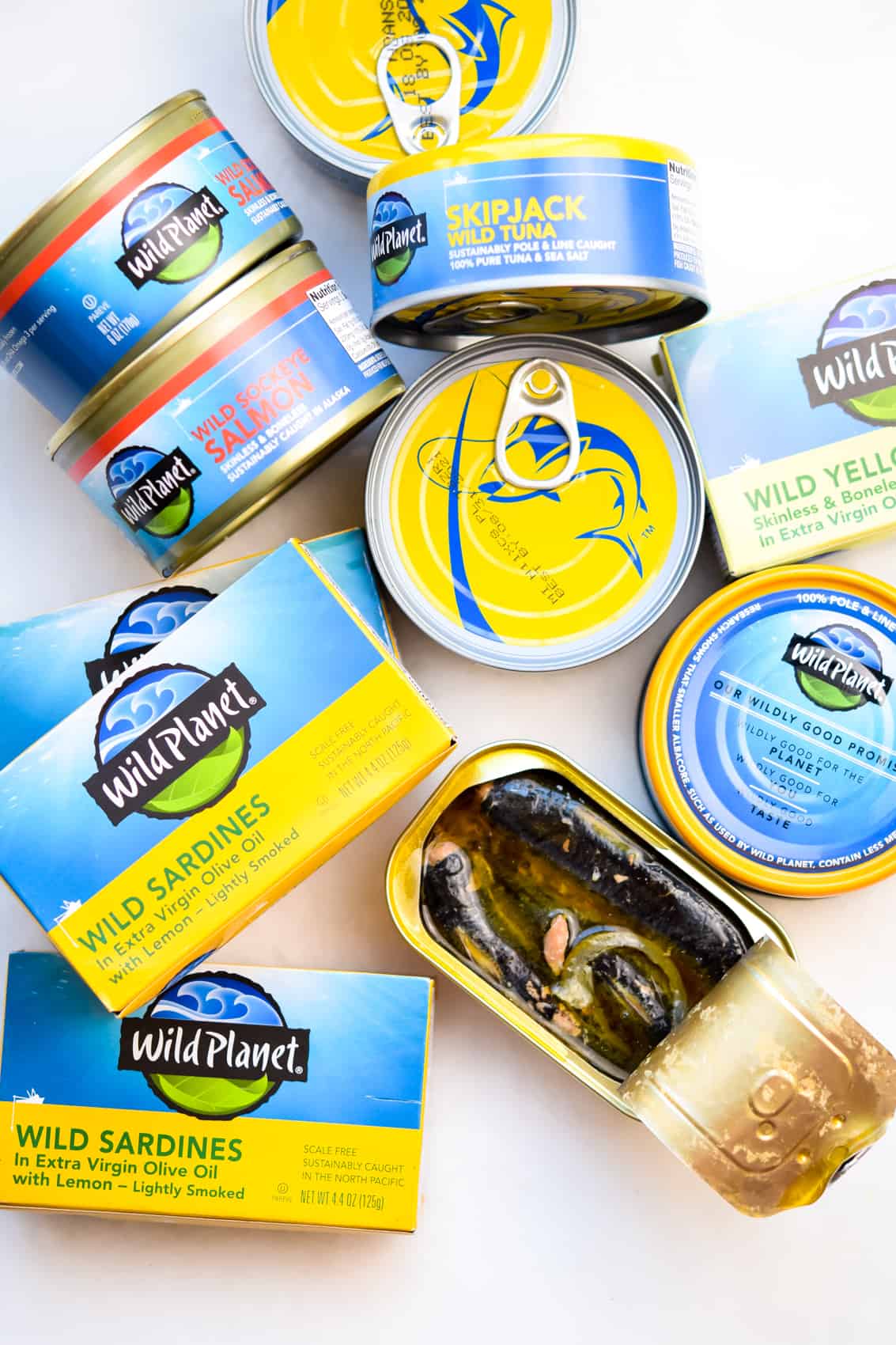
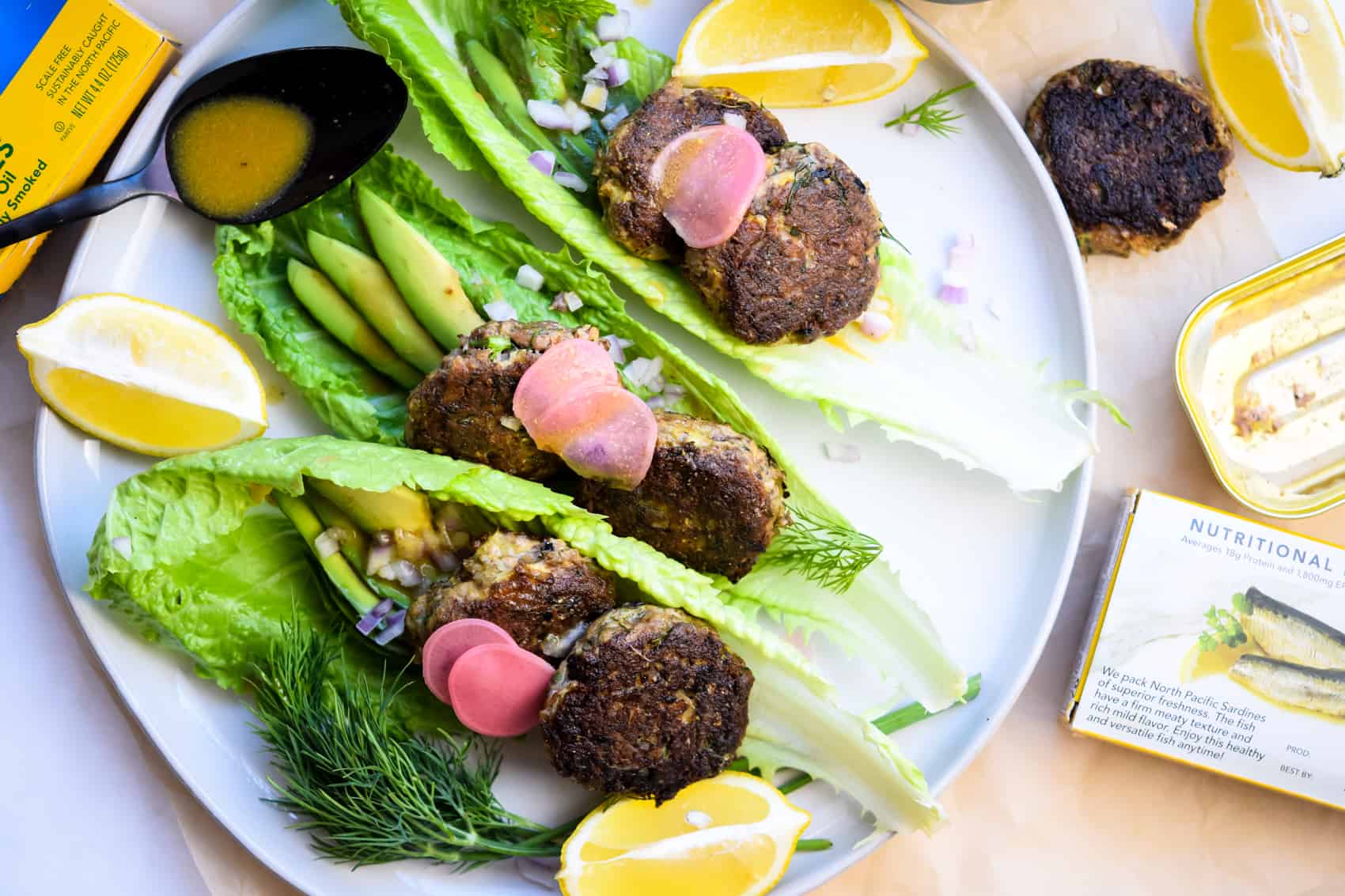
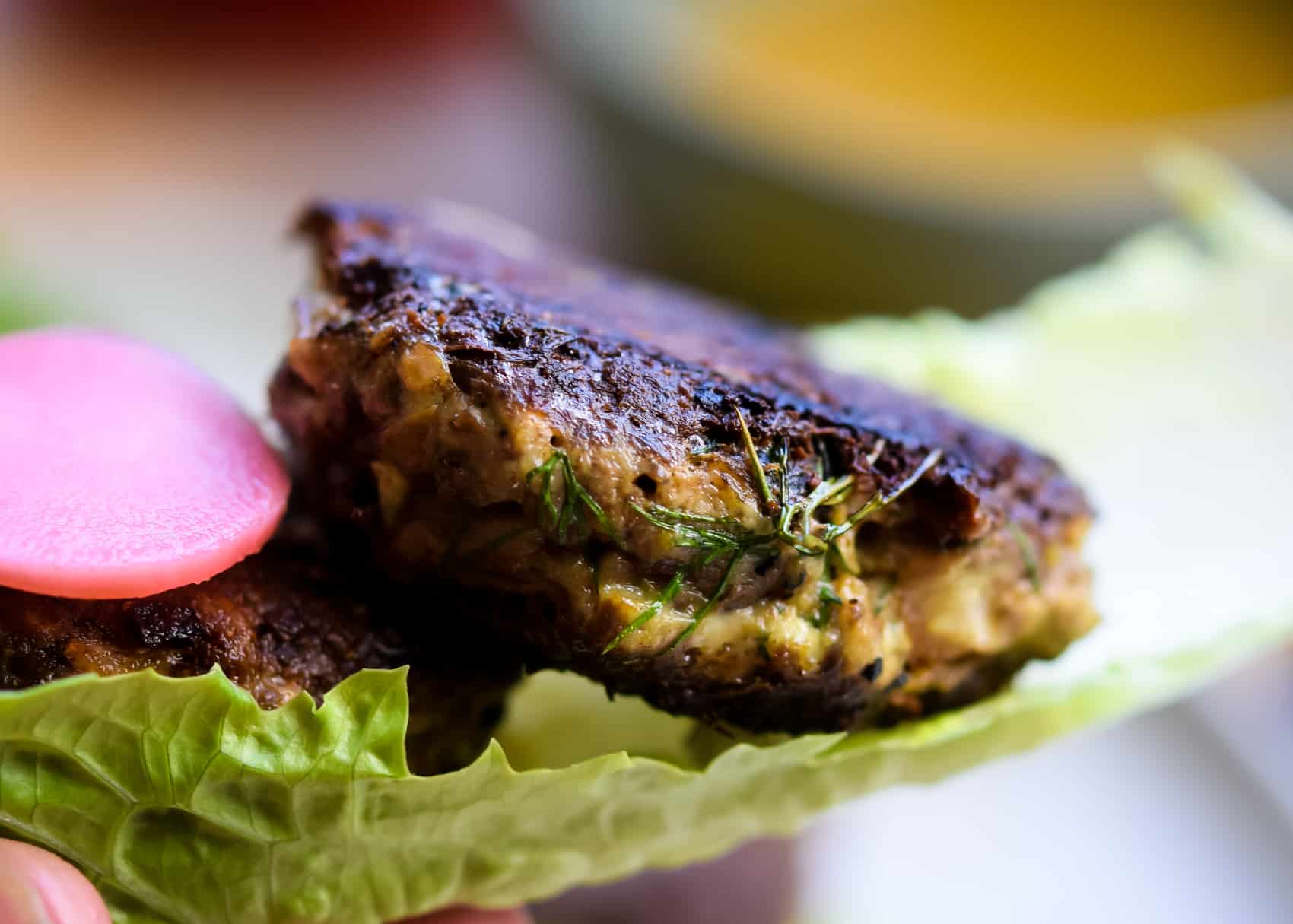
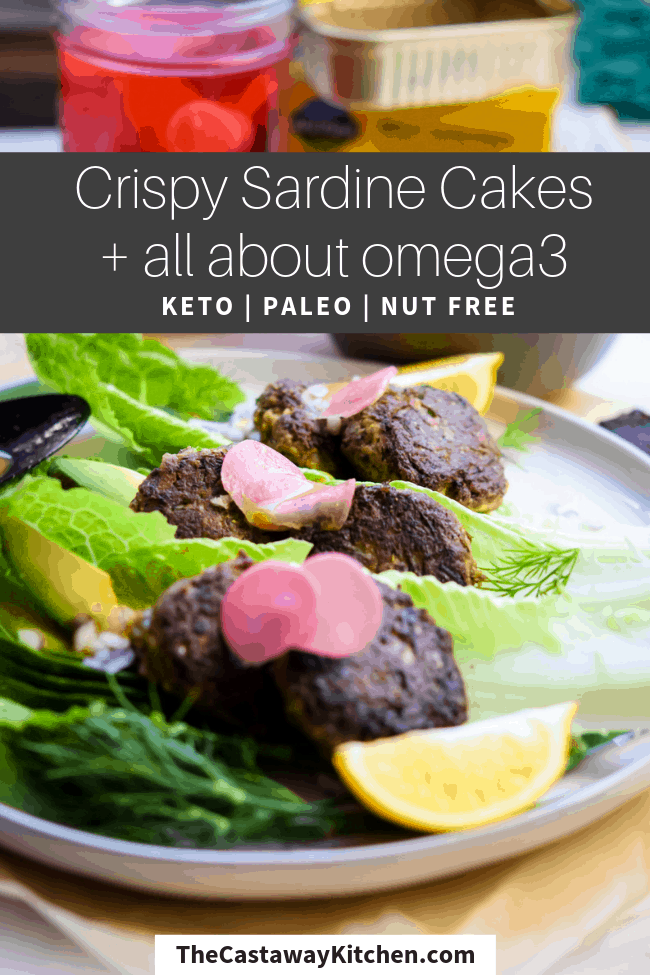

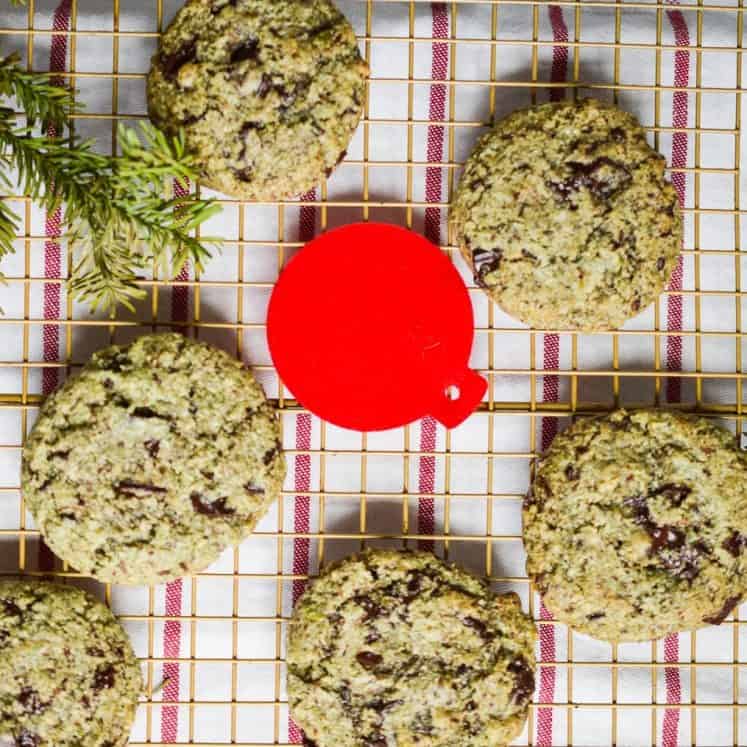
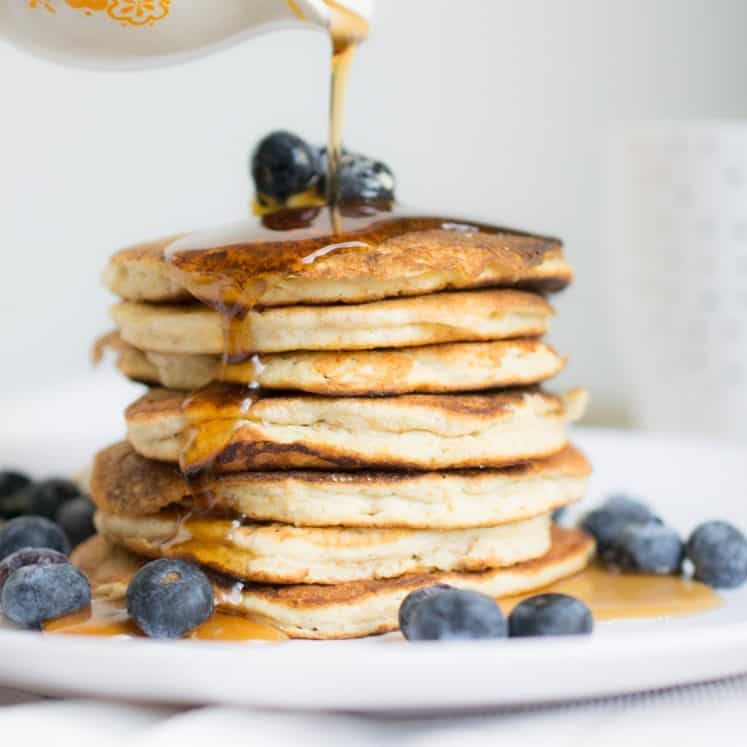

Carla F says
I made these for dinner yesterday, holy yum! My husband and I both thought it was soooooo good!!! Don’t think I’ve ever tried a recipe of yours that I didn’t love! (Cookbooks and website) Thank you for the amazing recipes.
Brooke says
These are truly delicious. They are a staple in our family. We use low salt sardines in water and then add two tablespoons of olive oil for each serving of sauce. We also halve the coconut aminos and mustard to cut down on salt (due to kidney stones). To save time, we use 1/2 teaspoon of onion powder instead of chopping an onion. We don’t use an avocado but serve the cakes on top of arugula with homemade mayo. Thanks for a great recipe!
Cristina Curp, FNTP says
Thanks Brooke!
MaWo says
I have sardines in oil, but not with lemon. Should I add lemon juice or extract, or is it not essential?
Cristina Curp, FNTP says
Lemon juice or even lemon rind will be just fine!
Michelle says
I just made these and they are simply DEVINE! I didn’t have coconut aminos and used tamari. I didn’t have fresh dill so I replaced with 1/2 tablespoon of dried dill tips. Then I placed on a bed of rocket and watercress that I had in the fridge. I might omit the salt next time as it was a tad salty. This is going to be a staple meal for me from now on. Just so delicious!
Cristina Curp, FNTP says
Glad you love them! Tamari is much saltier than coconut aminos, that’s probably why they came out a little salty.